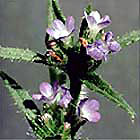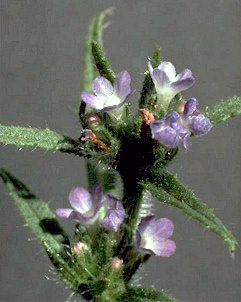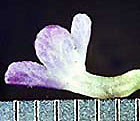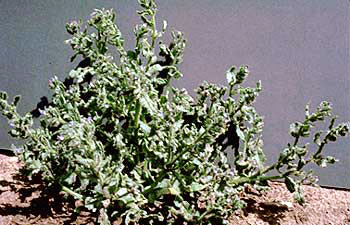Annual bugloss identification and control
Lycopsis arvensis, Boraginaceae Family

Legal status in King County, Washington
Public and private landowners are required to control infestations of annual bugloss on their property in King County. Annual bugloss is a Class B Noxious Weed in Washington, first listed in 1991. It is designated for required control in King County by the Washington State Noxious Weed Control Board and is on the list of Regulated Class B Noxious Weeds in King County. For more information, see Noxious weed lists and laws.
Additional information on annual bugloss
What to do if you find this plant in King County, Washington
Please notify us if you see annual bugloss growing in King County. Our program staff can provide the property owner or appropriate public agency with site-specific advice on how best to remove it. Also, because annual bugloss is not established in King County, we have an opportunity to stop it from spreading if we act quickly. We map all known locations of regulated noxious weeds such as annual bugloss in order to help us and others locate new infestations in time to control them.
Annual bugloss photos



Report annual bugloss in King County, Washington
- Please notify us through our online infestation form
Locate annual bugloss in King County, Washington
- Use our interactive noxious weed map and search
for annual bugloss
Related information
Related agencies
Program offices are located at 201 S. Jackson St., Suite 600, Seattle, WA 98104. To contact staff, see the Noxious Weed Control Program Directory, send an email, or call 206-477-WEED (206-477-9333).

 Translate
Translate